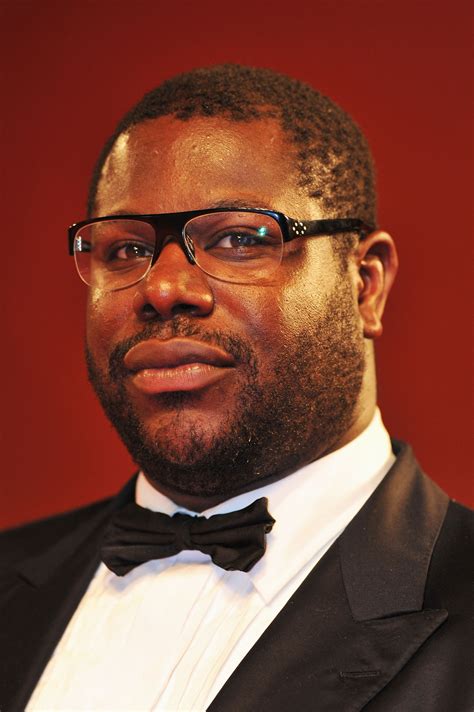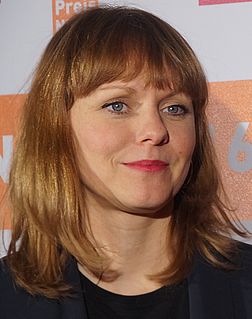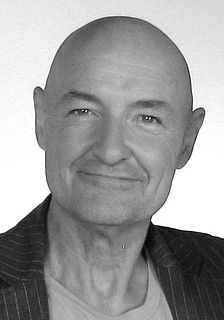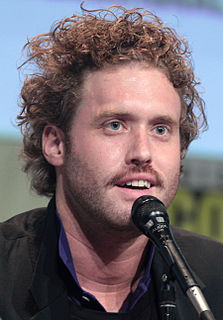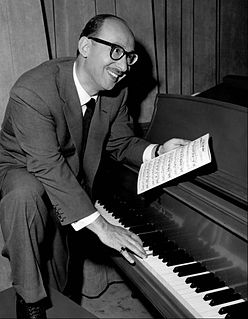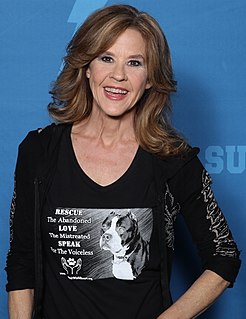A Quote by Eddie Redmayne
My first film, 'Like Minds,' was with Toni Colette, who was extraordinary. I mean it was basically a mini-masterclass for acting on film at a time when all you could probably see were my eyebrows bouncing up and down on screen.
Related Quotes
For me, as a film goer, I like nothing more than to sit in the cinema, have the lights go down and not know what I'm about to see or unfold on-screen. Every time we go to make a film, we do everything we can to try to systematise things so we're able to make the film in private, so that when it's finished it's up to the audience to make of it what they will.
We made 'Mickey and the Bear' with barely any money with a first-time director, a first-time director of photography, and a crew who had just graduated from NYU film school. We were all very much in this together for the first time. There's no famous actor or big explosions. It's not a Marvel movie. I thought nobody was going to see this film.
I really discovered [Dr.Strange] through hearing about this film and first meeting Scott [Derrickson] and getting into it and just opening up and saying, "Okay, this is, like all comics, very much of its era," and my first question was, 'How do you make this film? Why do you make this film now?' and the answers were so enticing that I was like, "I'm in."
Films are subjective - what you like, what you don't like. But the thing for me that is absolutely unifying is the idea that every time I go to the cinema and pay my money and sit down and watch a film go up on-screen, I want to feel that the people who made that film think it's the best movie in the world, that they poured everything into it and they really love it. Whether or not I agree with what they've done, I want that effort there - I want that sincerity. And when you don't feel it, that's the only time I feel like I'm wasting my time at the movies.
For me, it was always clear that Toni Erdmann is more a film about what globalization, capitalism, does with private relationships much more than making a "political" film. It's more interesting to raise questions, because I don't feel in a position to "make a statement" with the film. Toni Erdmann comes from a completely different generation then his daughter, it's the post-war generation, they were very politically engaged. They raised their children with a lot of human worldviews, sent them out in the world believing in a world without borders.
If you make a film, that magic is not there, because you were there while shooting it. After writing a film and shooting it and being in the editing room every day, you can never see it clearly. I think other people's perception of your film is more valid than your own, because they have that ability to see it for the first time.
Sometimes, things need to be so understated on film that I don't even see them as funny, which isn't my favorite style, comedically. When I watch film comedy, I like people that are a little bit more alive on the screen and wound up. I like volatility and unpredictability and other long words like those.
I'll remember this to my grave. We all walked into a room to see the screen tests. The first screen test was Marion Hutton's. Then came Janis Paige [who ended up with a part in the film]. Then on the screen came Doris Day. I can only tell you, the screen just exploded. There was absolutely no question. A great star was born and the rest is history.
I remember, the first time I saw a [Andrei] Tarkovsky film, I was shocked by it. I didn't know what to do. I was fascinated, because suddenly I realized that film could have so many more layers to it than what I had imagined before. Then others, like Kurosawa and Fellini, were like a new discovery for me, another country.
Warner Brothers had to hire [a stunt double] and no one thought a child could do this. Billy Friedkin came to me before we were filming [The Exorcist] and said "if you do not do all of this film, the film will be a joke." It's why they stripped the makeup down to the bare minimum, a piece on my chin, piece across my mouth that disfigured my mouth. You have scars here. Take away my eyebrows. It was my real hair. Shampoo was put in it that dried.
If I can give a young author any advice, whatsoever, never let anyone announce the film sale of your first novel. Film rights are sold to almost every novel, but it shouldn't be the lead story in your first engagement with the press. Then you end up getting reviews like "a novel made for the screen" and things like that.


